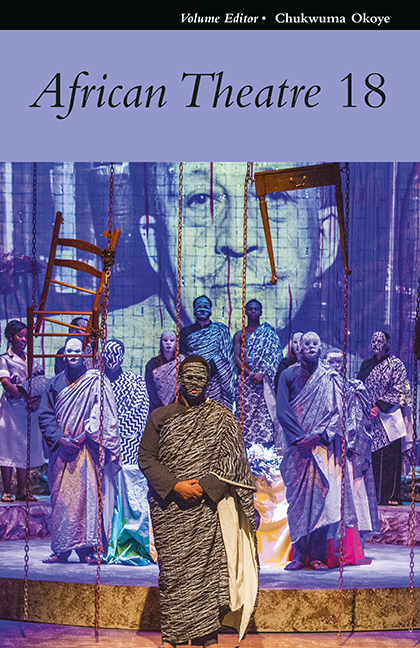Samuel Kasule, Walukagga the Black Smith
Published online by Cambridge University Press: 02 April 2020
Summary
In a post-dramatic and post-truth world, the onus is most frequently on theatre artists to use traditional fables and myths to re-interpret and propose new solutions to social and political questions that would otherwise draw the sanctions of constituted authorities and tyrants. In African writing, the recuperation of myths and history is becoming more popular to contest and subvert received forms, and, in the process, create a balanced appraisal of the past. Many of the writers go beyond assessing the past though; there is a resurgence of activism that appropriates myths and substantially embellishes them to mediate the theatrics encoded in oral traditions.
African settings are rich in myths, legends, dilemma tales and dances, perhaps not more than the rest of the world but the manner of engagement with these elements among African people is unique. In Africa, it takes a madman to counsel a tyrant and relieve the yokes of oppression on the shoulder of brave warriors, wise sages and fearful subjects. One of such narratives is Walukagga the Black Smith by Samuel Kasule. Kasule has taken a folk narrative and constructed a drama that contests the tyranny, violence and the cycle of political criminality.
Walukagga the Black Smith is a drama derived from the oral tradition of the Baganda people about a tyrannical Chief whose rule is ended by the intervention of a madman. Written in Luganda and translated to English language – both published in this volume – this is a re-visioning of the popular traditional story of Walukagga to address the contemporary issues of corruption, oppression and political uncertainty on the African continent. It is more than an adaptation of the folktale however; rather, it is a re-reading and re-presentation of a people's mode of dealing with societal aberrations, scourges and anathemas.
Set in the suburb of a bustling city, where Walukagga the blacksmith maintains his workshop, next to a drinking parlour that also serves as the meeting place and gossip centre for the community, the play opens with Majangwa pondering the intricate workings of a close circuit television camera. Majangwa of course is a madman. Right at the outset, we are introduced to the contemporary toys of the modern age, alerting us that this Walukagga is not the familiar oral tale, but a re-reading with sinister undertones.
- Type
- Chapter
- Information
- African Theatre 18 , pp. 190 - 192Publisher: Boydell & BrewerPrint publication year: 2019

